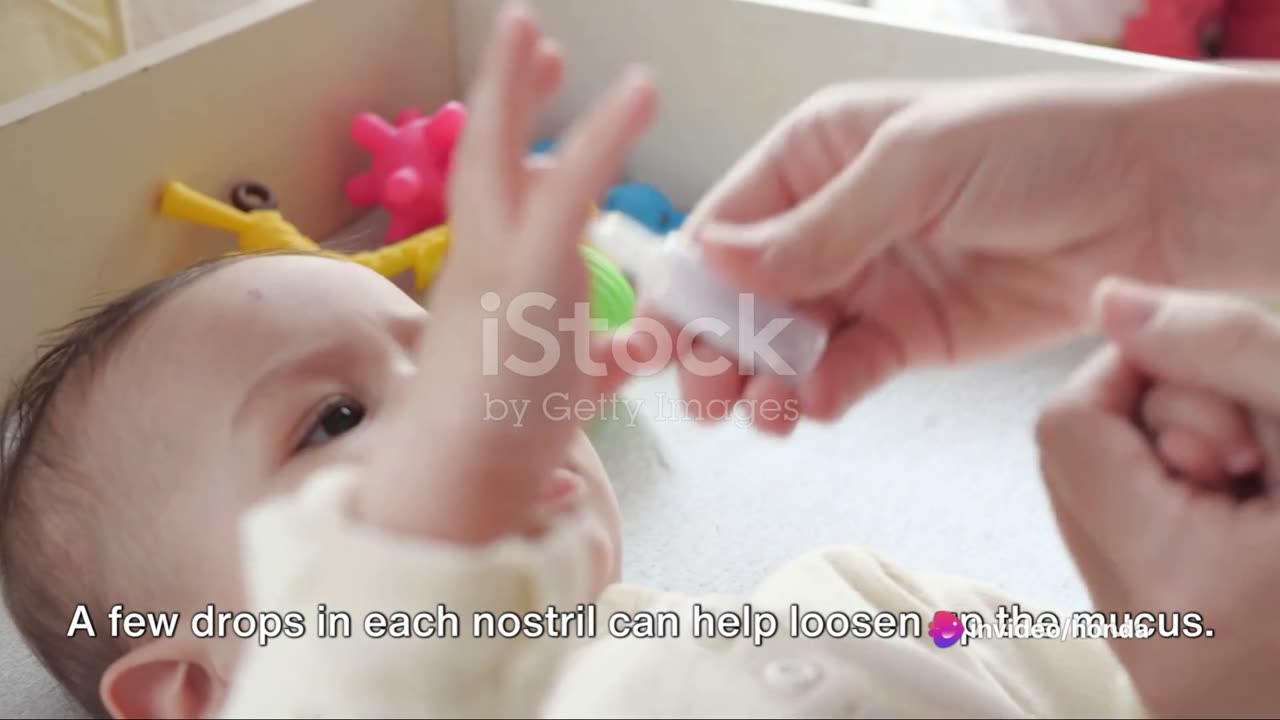Premium Only Content

How to Deal With Babies Runny Nose
Dealing with a baby's runny nose is a common concern for parents, especially during the cold and flu season. A runny nose in a baby can be caused by various factors, including allergies, infections, teething, or even just normal nasal congestion. Here are some steps to help you manage a baby's runny nose:
Keep Them Hydrated: Ensure your baby is getting plenty of fluids, whether through breastfeeding, formula, or small sips of water (if they're old enough). Hydration can help thin mucus and ease congestion.
Use a Humidifier: A cool-mist humidifier can add moisture to the air in your baby's room, which can help relieve congestion and soothe their irritated nasal passages. Be sure to clean the humidifier regularly to prevent mold and bacteria buildup.
Saline Drops: Saline nasal drops can help moisturize and loosen mucus in your baby's nose. Place a few drops in each nostril and then use a nasal aspirator (bulb syringe) to gently suction out the mucus. Be gentle and cautious when using the aspirator to avoid causing discomfort or injury.
Elevate the Head: Elevating your baby's head while they sleep can help reduce nasal congestion. You can do this by placing a rolled-up towel or a wedge under the mattress at the head of the crib, but make sure it's safe and doesn't pose a suffocation risk.
Avoid Irritants: Keep your baby away from tobacco smoke and other irritants, as they can worsen nasal congestion.
Warm Bath: A warm bath can help relax your baby and ease congestion. The steam from the bath can also help clear their nasal passages.
Use a Nasal Aspirator: As mentioned earlier, use a nasal aspirator to gently remove excess mucus from your baby's nose. Make sure to follow the manufacturer's instructions and use it carefully to avoid hurting your baby.
Over-the-Counter Medications: Consult your pediatrician before giving any over-the-counter medications to your baby, especially if they are under 2 years old. Some medications may not be safe or effective for infants.
Monitor for Other Symptoms: Keep an eye on your baby for signs of a more serious illness, such as a high fever, difficulty breathing, or persistent cough. If you notice any concerning symptoms, consult your pediatrician.
Consult a Doctor: If your baby's runny nose persists or worsens, or if they have other concerning symptoms, it's important to consult a healthcare professional. They can provide a proper diagnosis and treatment plan if necessary.
Remember that babies have small nasal passages and may have occasional nasal congestion even when they are healthy. Most cases of a runny nose in babies are due to common colds or mild illnesses and resolve on their own. However, it's essential to monitor your baby's condition and seek medical advice when needed to ensure their well-being.
Rumble: Life Lessons With AJ
https://rumble.com/account/content?type=all
Youtube: Life Lesson With AJ
https://www.youtube.com/@LifeLessons57/videos
Facebook: Life Lessons With AJ
https://www.facebook.com/profile.php?id=61550546954698
TikTok: Life Lessons With AJ
https://www.tiktok.com/@lifelessonsaj
-
 LIVE
LIVE
Side Scrollers Podcast
1 hour agoCracker Barrel CANCELS Rebrand + OG YouTuber Has Brain Tumor + More | Side Scrollers IN STUDIO
294 watching -
 LIVE
LIVE
The Mel K Show
1 hour agoMORNINGS WITH MEL K - Reexamining the US relationship with International Banks, Treaties, and NGOs 8-27-25
684 watching -
 LIVE
LIVE
The Shannon Joy Show
3 hours ago🔥🔥SAVE Baby Kit! Hospital Injects 2 Pound Baby With Hep B Vaccine Without Mom’s Consent, Injures Him Severely Then Calls CPS On The Family!🔥🔥
171 watching -
 LIVE
LIVE
Viss
1 hour ago🔴LIVE - Improve Your Battle Royale Play with Tactics & Strategy! - PUBG
151 watching -
 43:26
43:26
Grant Stinchfield
3 hours agoBallot Harvesting Scams EXPOSED: Dead Voters, Fake Signatures, Real Crimes
6.8K1 -
 1:01:40
1:01:40
VINCE
4 hours agoThe Democrats' Ticking Time Bomb | Episode 112 - 08/27/25
173K130 -
 LIVE
LIVE
JuicyJohns
4 hours ago $0.62 earned🟢#1 REBIRTH PLAYER 10.2+ KD🟢
50 watching -
 LIVE
LIVE
LFA TV
6 hours agoLFA TV ALL DAY STREAM - WEDNESDAY 8/27/25
4,904 watching -
 LIVE
LIVE
GloryJean
3 hours agoAggressive Solo Gameplay on Mouse & Keyboard 🖱️ 6.7 K/D
29 watching -
 LIVE
LIVE
The Pascal Show
2 hours ago $0.11 earnedBREAKING! Mass Shooting At Annunciation Church In Minneapolis Multiple Shot
37 watching